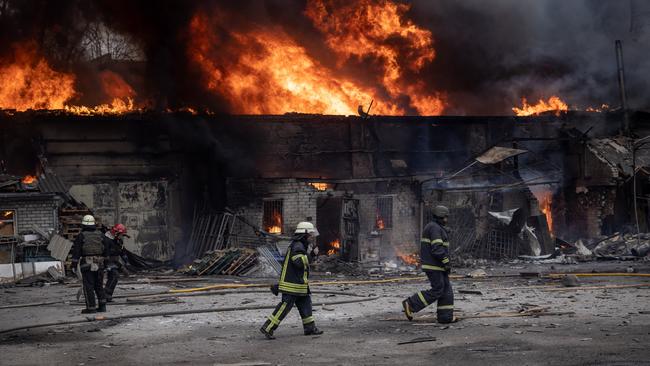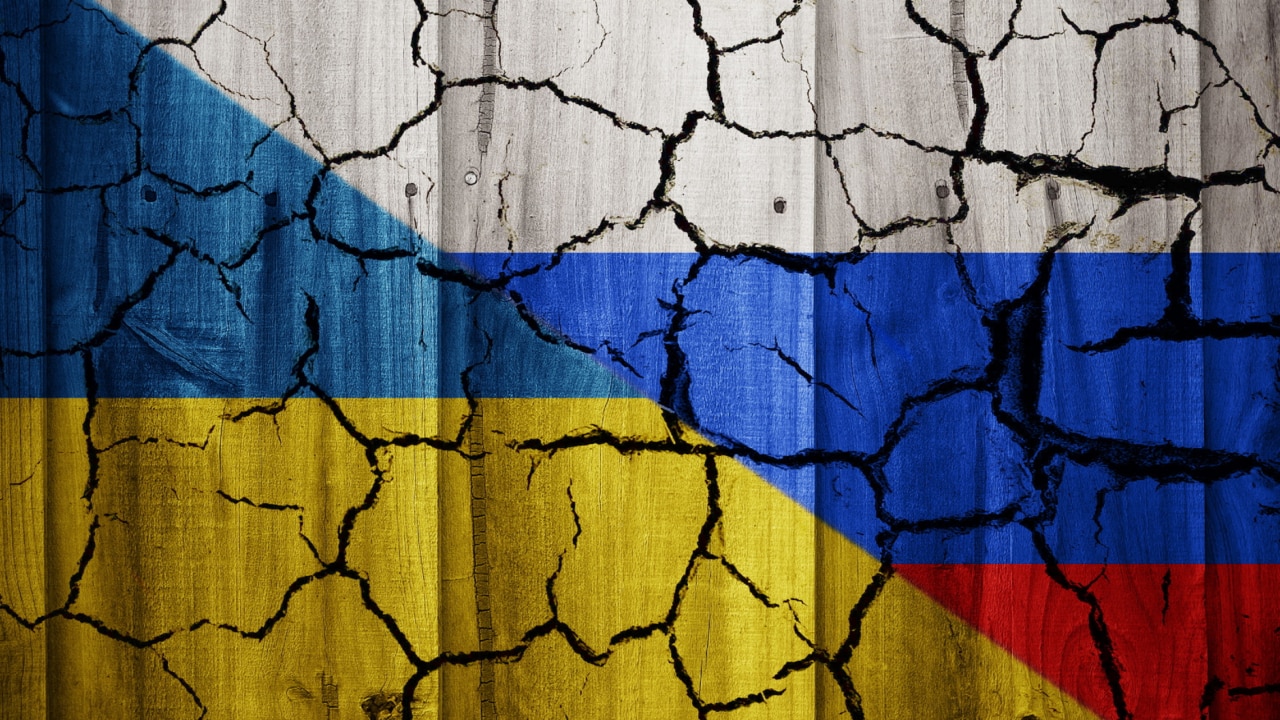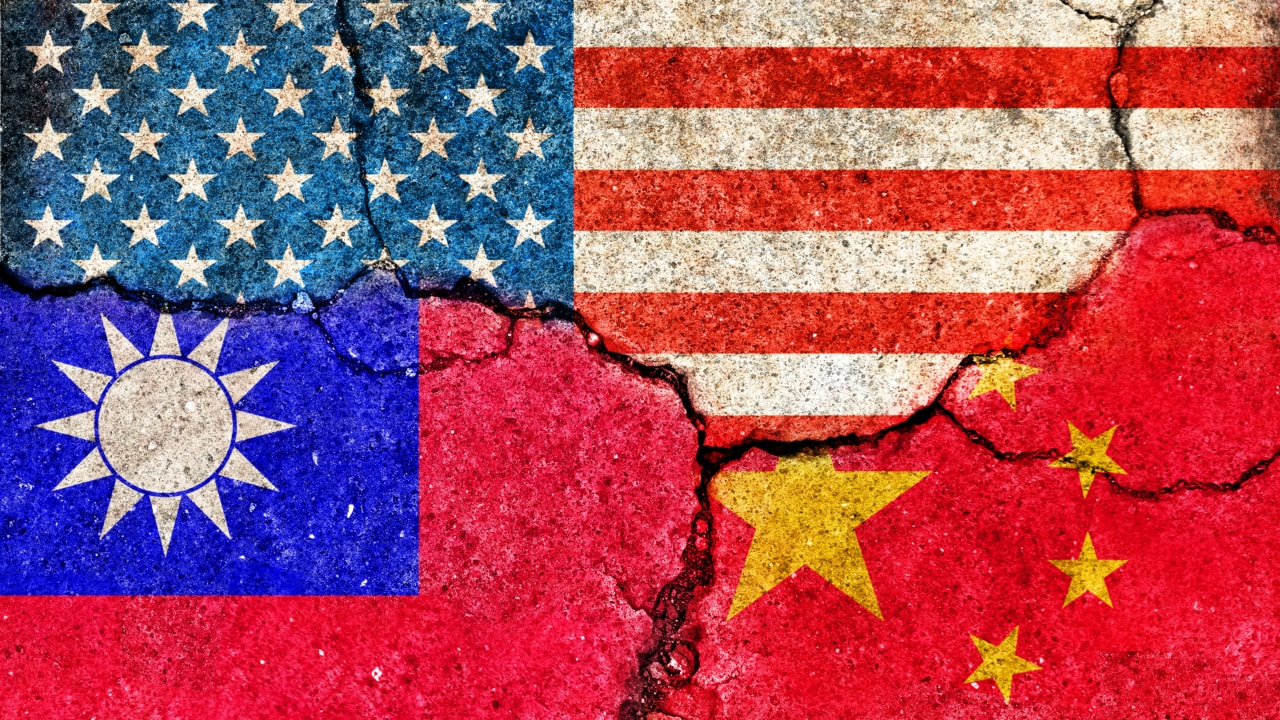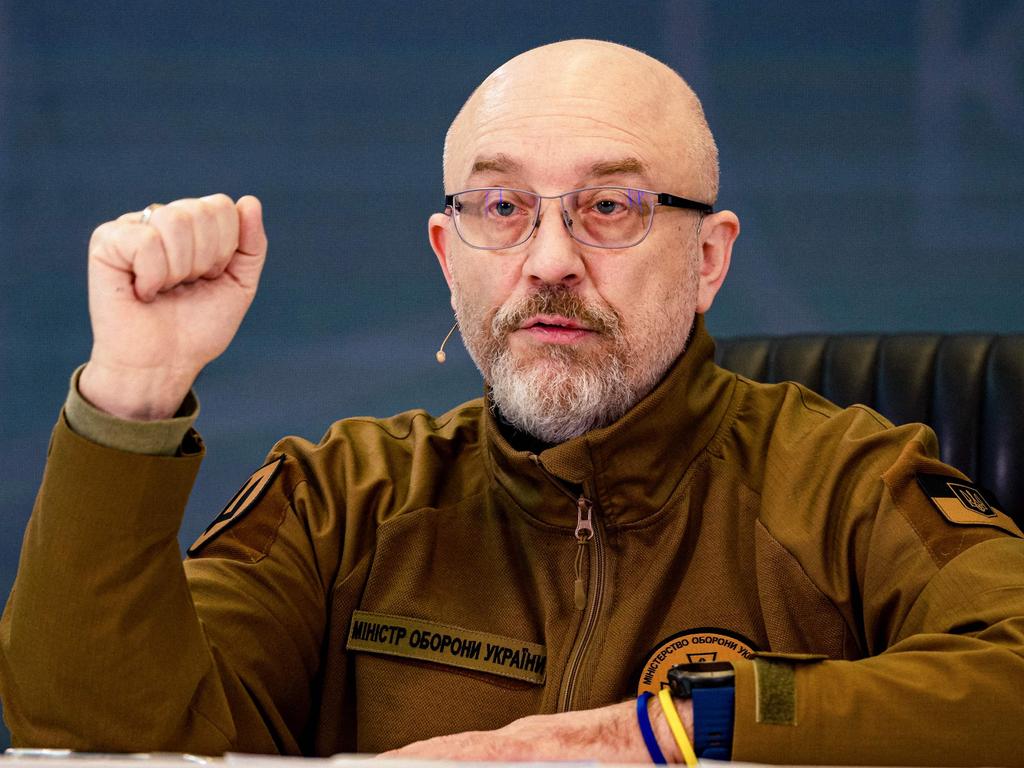
Donald Trump says he will end the war on day one by insisting that Ukraine’s President, Volodymyr Zelensky, and Russia’s President, Vladimir Putin, cease fire and begin peace negotiations straight away. If Zelensky doesn’t agree, Trump will cut off US military support.
The Europeans have given some military support to Ukraine but overwhelmingly the firepower comes from the US. There’s little prospect of Kyiv or Moscow winning absolutely decisively. Putin has every incentive to keep going until at least the US election is decided.
Washington has given Ukraine something like $US135bn ($208bn) in military and economic aid. Australia has given mainly rhetorical support, with tiny quantities of relevant arms and wildly overvalued stocks of junk. All the heavy lifting is being done by the US.
How can we determine the morality of this war?
Christianity has deeply considered the morality of a just war. St Augustine, the fourth-century bishop of Hippo in North Africa and a giant of Christian theology and Western civilisation, was a critical figure in thinking it through. He was motivated partly because Christian communities were being attacked and slaughtered and he wanted protection for them from the soldiers of the Roman Empire. Other traditions beyond Christianity have also worked hard at when it is truly necessary to go to war, and how a nation should wage war.
The Christian tradition holds that for a war to be just it must serve a just cause, it must be a last resort, there must be a reasonable chance of success, and you must not allow greater evil than the good you achieve – or, to put it another way, the good you want must be greater than the evil of the destruction that the war itself will cause. And, generally, in the waging of war you must not deliberately target civilians. As well, war must be prosecuted by a legitimate authority.
It’s clear Russia’s actions satisfy none of these criteria. Moscow’s invasion of Ukraine was not a just cause, not a last resort and wildly disproportionate to any wrong Russia claimed, however spuriously. What about Ukraine’s decision to fight back? Estimates of war dead are unreliable but the number on both sides is huge. The New York Times has reported there could be as many as 120,000 Russian soldiers who have died and 70,000 Ukrainian soldiers, as well as many civilians.

So how does the morality of the war stack up against Christian just-war criteria? You might have argued that, when Russia first invaded in February last year, the chance of Ukrainian success was so slight that Kyiv would have been better seeking accommodation with Moscow. That argument has certainly been proved wrong.
The Ukrainian effort has been militarily successful and has recovered most of the territory Moscow took in this invasion. Russia still occupies 20 per cent of Ukraine, mainly territory it invaded in 2014.
Was the war declared on the Ukrainian side by a legitimate authority? Yes, the Ukrainian government and politics are highly imperfect, with a good share of corruption and all the rest, but it is a legitimate nation and its government was legitimately formed in democratic elections. A nation doesn’t have to be perfect to have the right of self-defence. Similarly, on Ukraine’s side the basic cause is clearly just, preserving its national independence. Certainly, too, war was a last resort. Ukrainian forces didn’t fire a single shot until they were invaded.
Generally, Ukrainian forces have not targeted civilians, unlike Russian forces. The question of targeting civilians is more complex, with more grey areas, than it first seems. It’s legitimate in a just war to attack, say, a naval base or an aircraft factory knowing civilians will be killed.

The object of the attack is not to hurt civilians but to knock out combat ships or combat aircraft, but it’s permissible, if tragic, to allow civilian casualties unintentionally in the pursuit of a military target. So the real question about the morality of the war centres entirely on proportionality. This is the most difficult of the questions of the morality of war. If a hostile nation, say, took control of Christmas Island, Australia would have every right to eject its forces by military measures. But Australia wouldn’t have the right to unleash a nuclear strike on the nation’s capital, for example (not that we have nuclear weapons, but speaking hypothetically). The cause, ejecting a foreign power from Christmas Island, would be just but the response would be wholly disproportionate.
Isolationist Republicans in the US arguing against aiding Ukraine, and their fellow travellers in other allied countries, in so far as they make any moral case against the aid, do so entirely on the basis of the disproportionate destruction and cost of the war.
This, however, is an argument that fatally favours dictators and aggressors. I remember having a fairly heated disagreement with a conservative semi-isolationist once over Taiwan policy. A war to secure Taiwan’s independence, he said, would involve hundreds of thousands of dead and vast economic loss. So much better to sacrifice Taiwan to Beijing, if push comes to shove, rather than resist.

The problems with this kind of approach are legion. They mean if you accept the aggressor is willing to escalate endlessly then the ultimate cost of resistance is too great. Therefore better not to resist right from the start. Under that formula, the aggressor always wins.
One hopes, of course, that if Australia is ever in trouble our allies do not make a similar moral judgment. But also the instinct of accommodation is as likely to be wrong on the facts as to be right on the facts.
The Korean war had a horrendous cost in lives and treasure. But South Korea preserved its national independence and developed into a magnificent democracy, a fine society, an affluent nation and a territory that observes its own population’s human rights and commits no human-rights offences against anyone.
For decades of the Cold War, it seemed there could be a Soviet-led invasion of parts of Western Europe. But deterrence stopped this. For deterrence to work, however, it requires that the allied powers at some point are willing to go to war.
In Ukraine, no allies have had to go to war. They’ve just supplied Ukraine with weapons and aid. The Ukrainians are paying a fearful price for their independence. But they’ve chosen to pay that price rather than live as slaves.
Here is another element of the argument of proportionality. If Russia rolled over Ukraine without resistance, or if China rolled over Taiwan without resistance, what reason is there for concluding that would be the limit of their territorial ambitions?
The Ukraine war will probably end with a deeply unsatisfactory armistice in place, along the lines of the armistice that ended the Korean war in 1953. That may mean Russia unjustly keeping some Ukrainian territory.
But if the West signalled now that it won’t provide military or economic aid to a friendly nation willing to do all its own fighting after being unjustly attacked militarily, that too could have disproportionate consequences. It would also be deeply immoral.








The effort to support Ukraine in its war against Russia is morally just and geo-strategically wise, in my view. However, the question of the war’s morality isn’t simple and deserves serious attention.